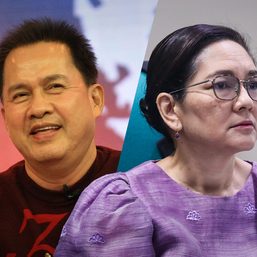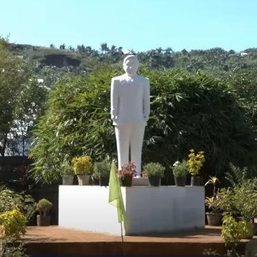SUMMARY
This is AI generated summarization, which may have errors. For context, always refer to the full article.

MANILA, Philippines – The Philippines needs a law against religious violence, including sexual abuse by church leaders, said a sociologist of religion as the Senate investigates an alleged cult in the southern part of the country.
“I think it’s high time for a policy to be set in place when it comes to religious violence,” said sociologist Jayeel Cornelio when sought by Rappler for comment on Friday, September 29.
Such policy can “compel religious groups to create structures of accountability among themselves whenever cases like this crop up,” said Cornelio, an Ateneo de Manila University professor whose expertise includes religion in public life.
“We can make the case that the state has a responsibility to protect the welfare of its citizens whenever they are rendered vulnerable to religious groups, authoritarian religious groups, where accountability structures are very weak,” said Cornelio.
When asked how he would define “religious violence,” Cornelio said: “We can cast the net wide. We can say physical, emotional, mental, and spiritual violence inflicted upon people in the context of a religious space and justified using a religious language.”
Cornelio made this proposal as the Senate probes the alleged cult called Socorro Bayanihan Services Incorporated (SBSI) based in Socorro, Surigao del Norte. The Senate investigation, which aims to help senators craft new laws, was prompted by the privilege speech of opposition senator Risa Hontiveros, a women and child rights advocate.
The SBSI is accused of sexually abusing children, forcing them into marriage, denying them education, and compelling them to undergo military training. The group is led by 22-year-old Jay Rence Quilario, also known as “Senior Agila,” whom his followers see as the reincarnation of the Santo Niño, a popular Filipino icon of the Child Jesus.
The Senate detained Quilario and three other SBSI leaders on Thursday, September 28, after two committees cited them in contempt for denying the practice of child marriage within their community. The Senate is expected to soon continue its probe into SBSI.
‘Very, very difficult’
When sought for reaction to Cornelio’s proposal, human rights lawyer Theodore Te said it is often “challenging” to tackle legislation regarding religion or belief. This is because the 1987 Constitution upholds the separation of church and state, as well as freedom of religion and the non-establishment clause, which bars the state from favoring or sponsoring any religion.
According to Te, it is important to first determine the definition of “religious violence” – whether it is violence inflicted against a believer, violence inflicted by members of a particular faith in relation to each other, or violence inflicted by members of another faith against non-believers.
Illustrating the legal nuances involved, he said: “If you’re talking about violence inflicted against believers, you have to look at who is committing it. Are they members of the state? Are they police, military, agents of the government?… If it is a non-state actor, a private person, for example, inflicting an act of hate or violence against a believer, that’s a different aspect.”
He said it gets more complicated when “freedom of religion” is cited. “If the law says, ‘That’s prohibited,’ does the law declare that we favor religions that do not have those practices? On the other hand, can the state say, wait, we also cannot allow having a religion with such a manifestation,” Te said in Filipino.
“The law needs to be crafted in a way that does not violate non-establishment, does not violate freedom to worship, and does not enter into religion as a form of governance,” said Te. “I’m not saying it’s not possible, but I’m saying it will be very, very difficult. Because you will really put nuances.” – Rappler.com
Add a comment
How does this make you feel?










There are no comments yet. Add your comment to start the conversation.